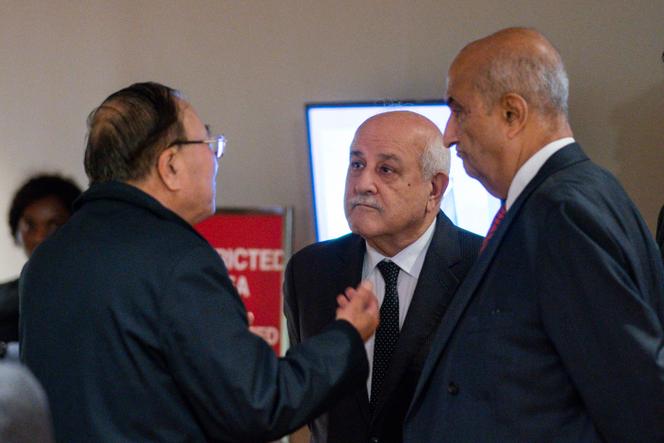


In a letter to UN Secretary-General Antonio Guterres dated Tuesday, April 2, UN envoy Riyad Mansour requested "upon instructions of the Palestinian leadership" that an application for Palestine to become a full member state in the United Nations dating back to 2011 be reconsidered – a process with an uncertain outcome but one they say is necessary in the face of Israel's offensive in Gaza.
The letter has been transmitted to the Security Council, and the Palestinians have asked that it be reviewed this month. Mansour has repeatedly said in recent months that given Israel's military offensive in the Gaza Strip, a response to the October 7 attack by Hamas, UN membership is a priority for the Palestinians. "It was the international community that decided to create two states in Palestine since 1947," Mansour said in February. "It is the duty of the international community along with the Palestinian people to complete that exercise by admitting the state of Palestine to membership."
Last month, he said the Palestinians would "start mobilizing the largest number of countries to support us" and expressed hope that the council would act in April, pointing to a council meeting set for April 18 on the situation in Gaza.
Malta, which holds the rotating Security Council presidency, said Mansour's letter was "received and circulated" to council members, adding that talks would be held "on a way forward." The League of Arab States, the Organization of the Islamic Conference, and the Non-Aligned Movement sent a letter to Guterres on Tuesday, supporting the bid by the Palestinians. "We wish to bring to your attention that, as of this date, 140 Member States have recognized the state of Palestine," said the joint letter, which included a list of those countries.
The 2011 application, launched by Palestinian President Mahmud Abbas, never came before the Security Council for a vote, and the General Assembly voted to grant the Palestinians observer status in November 2012. Any request to become a UN member state must first be recommended by the council and then endorsed by a two-thirds majority in the General Assembly.
Observers believe the Palestinian push for membership is unlikely to reach the assembly as the United States, Israel's closest ally, could use its Security Council veto power to derail the recommendation. "I find it very hard to see the US swallowing this proposal." Richard Gowan, an analyst at the International Crisis Group said, specifying that it took months for Washington to agree not to block a council resolution calling for a Gaza ceasefire. "As far as Washington is concerned, forcing Palestinian statehood up the agenda is simply likely to make coaxing Israel into a ceasefire harder," Gowan said.
To win the council's approval, the Palestinians would have to secure nine votes from the 15 members and no veto from any of the five permanent members: Britain, France, China, Russia, and the United States. For now, Israel has clearly rejected a two-state solution, and its parliament voted overwhelmingly in February against any unilateral recognition of Palestinian statehood.
Several European countries – Britain, France, and Spain – have raised the possibility of considering recognition. In February, French President Emmanuel Macron said such a move was no longer "taboo." A new draft Security Council resolution written by France – now in the early stages of negotiations – raises the idea of "intent to welcome the State of Palestine as a full member of the United Nations."
